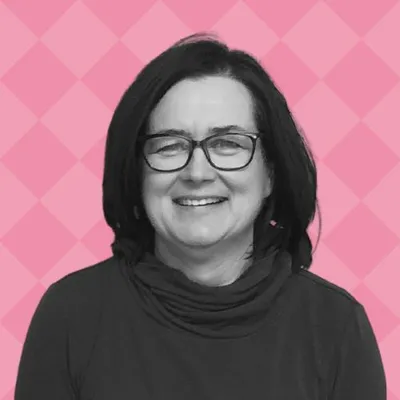Today we take an insider’s look into the habits of wealthy people. These people always have money from month to month. They also have a stash of cash in reserve for when life throws a curveball.
This is a topic that I’ve wanted to address for a while because I am pretty sure that I am not doing everything possible to look after my money and my future.
So, I asked all my friends what their attitude to money is and how they manage it. I’m not saying that all my friends are rich, but I do think that if everyone did all of these things, they might well become so.
A healthy relationship with money is something we should all seek to achieve.
Is this you?
- Do you struggle with your finances each month, living paycheck to paycheck?
- Do you know how much money you have to spend each month?
- Do you know for sure that you can afford to eat out, … say, twice this month … for definite?
If any of the above rings a bell, it can really help to look at the people that are crushing it financially. Not because they necessarily earn a shed load each month, but because they know how to use what money they have in a way that serves them.
Heads up: I sometimes use affiliate links. When you click these links and make a purchase, I may get a small commission. It won’t cost you anything but it helps me to run this site.
They use credit cards sensibly

Many people think that rich people are that way because they never get into debt of any kind.
But there is such a thing good and bad debt.
Good debt is well planned and researched and has a purpose, for example, a student loan or a house purchase.
Bad debt can result from impulse spending without a clear purpose, for example, a luxury holiday, a new car, clothing, and dining out.
Money spent on credit cards can result in bad debt when misused.
Rich people have a different mindset about credit cards; they regard money spent on credit as theirs, not someone else’s. They don’t see it as debt as such, because it is very temporary.
If the money does not exist in their bank balance, they do not spend.
When the statement arrives, they pay the balance in full.
Setting up an automatic direct debit for the full balance is a great tip.
They don’t live paycheck to paycheck

Rich people never utter the words such as, ‘on payday I can afford xxxx’.
You can stop living paycheck to paycheck by building up enough cash in your bank account to equal your salary. Then always spend the money you earned the month before.
They don’t live beyond their means
People with money have a very clear view of what they have to spend so that they don’t spend money they don’t have.
Which brings me on to the next point …
They have a budget

If you don’t have a budget, then it is hard to know what is and what isn’t affordable.
Having a budget and knowing where you stand financially each month can be very liberating.
Just knowing that you have a budget for one or two meals out in the month can make those meals all the more enjoyable.
The same goes for vacations. Planning your budget so that you have a holiday to look forward to can help you to stick with it.
They home cook

People with money have a budget, and in that budget, as we know, they will plan their leisure spending accordingly. The rest of the time, they will home cook.
I’m not talking microwave-ready meals. I’m talking about meals cooked from scratch which are much cheaper and healthier.
They don’t buy insurance
Now, I’m not saying that rich people never buy insurance because that would be irresponsible, of course, and could break the law.
I’m talking about insurance that you very probably don’t need.
Have you ever received a call a couple of days after a purchase from somebody wanting to sell you insurance for that item you just bought?
It sounds tempting. Just a couple of extra pounds or dollars per month and you won’t have to worry about accidents or breakdowns.
Do this a couple of times, and it all adds up very quickly. Do the math, and you will find that you could have bought yourself a new appliance anyway by the time the plan ends.
Rich people will never fall for this. They might consider putting that money in a savings plan. But they have an emergency pot of money for things like that. Which brings me onto the next point …
They have an emergency pot of money

People who have money have a stash of rainy day savings amounting to at least six months of income.
You can create your emergency savings pot over time by putting a bit by each month in a separate account. Set up a direct debit, and it becomes automatic. When you have your emergency pot built up, make sure it is in an account with the best interest rate you can find.
They make and mend

Now it helps if you are skilled at fixing things. If you can sew, then at least you can save plenty with the simple act of sewing on a button.
Youtube is great for diagnosing issues and helping you to fix. All you really need is a bit of confidence.
My husband is a fiend when it comes to mending.
What I’m about to tell you isn’t for everyone, but for us, it was a very satisfying saving indeed!
One day our washer broke. After a bit of googling, we diagnosed the problem. But the part was too expensive. So, we bought the same washer on eBay for £5 broken, but with a different problem. We then cannibalised the parts. Not only did we fix the washer for next to nothing, but we also had a stack of spare parts for future breakdowns.
Rich people take a long-term view
Taking a long-term view goes hand-in-hand with having clear goals. For example, a goal might be to move up the housing ladder in the next X years. It might be to get a promotion, change jobs, or change careers.
These goals can all be built into a budget. Saving for a college course, even borrowing (as part of a ‘good’ debt plan), is an investment in your future self.
They never stop learning

Rich people have a thirst for knowledge, and they are self-motivated to learn.
Rich people know that to learn is to grow. That growth can result in not only monetary richness but also richness in quality of life.
They are self-motivated to improve. They don’t wait for an employer to give them training, they go and get it for themselves. They are voracious readers.
I’m not doing any of these things, which is the most important for now?
A very good start is to get your budget in order first. Knowing what you do and don’t have is far better than guesswork.
When I made my first budget, it was such a relief. Just knowing how much I have to spend, how long it will take to save for an emergency fund and how much I can afford for fun things was a revelation.
I thoroughly recommend YNAB for budgeting. I’m a long time user of YNAB since before it went online. I still use the desktop app from years ago. YNAB tool keeps my finances in check from day to day, month to month and long-term.
Creating a budget in YNAB will force you to think about your long-term goals because you will need to create a category for them and allocate funds for each month.



.jRE-gViz_ZC1enx.webp)
.DSN35tZA_Z1yOu7.webp)
.r19mxrnS_RtMw9.webp)

.B4X-Il8n_Z24AC73.webp)



Share your thoughts
Your email address will not be published. Required fields are marked *